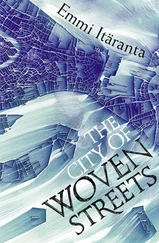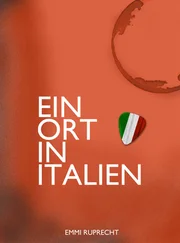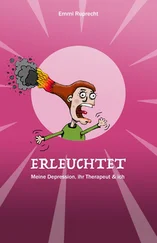I did not want to think about the most frightening possibility: that the message-pod had not been taken by any of the children, and not by mistake.
Sanja came for a visit in the afternoon. I was sweeping the veranda of the teahouse, and was not in the mood for talking.
‘I need to talk to you,’ she said and looked around.
‘There’s no one else here,’ I told her and placed the broom against the wall of the teahouse. There were things we only spoke of when we were alone, and others we didn’t speak of at all. One of them was what the voice of a woman had said on the last silver-coloured disc. I wondered if this was what she wanted to talk about now.
Sanja looked me in the eye.
‘I want to go with you,’ she said.
‘I’m not going to the spring for a few days,’ I said and started walking towards the house.
‘I don’t mean the spring.’ Her words sounded unusually heavy. I stopped and turned to look at her. Her face was tense, as if she was holding back grief or excitement. ‘I’ve been thinking,’ she said. ‘I want to go to the Lost Lands with you. Mum and dad and Minja are alright now that she is better and mum can work again. Can I come?’
I wanted to pull her into my arms, so glad I was that she was stepping into my dreams after all, that we would finally be the real explorers we had played as children. But an unexpected problem was complicating my plans.
‘Of course I want you to go with me,’ I said. ‘But the message-pod my mother sent has gone missing. I don’t know where I’ve put it. I’m afraid someone may have stolen it. I don’t have a hacked passpod—’
A flush began to colour Sanja’s pale face, and she was moving restlessly.
‘Noria,’ she said. ‘I need to confess something.’ She pushed a hand into her bag and pulled out my message-pod. ‘I’m sorry I didn’t say anything. I wanted to surprise you.’ She handed the hacked pod back to me, and I took it without a word. I was relieved, because no one from the village had taken it, and angry, because she had taken it without asking, and a little worried, because she had managed to take it without me realising. I switched the pod on.
‘Don’t worry, it’s every bit the same as it was,’ Sanja said. She rummaged in her bag again and pulled out another message-pod, a little older and more battered. ‘Look.’ She stepped next to me and placed her finger on the display. A paper-white light switched on, and a moment later a name appeared: ‘Lumi Vanamo.’ The birthplace was recorded as Rovaniemi and the birth date just over a year after Aino Vanamo’s birthday.
‘You were born in Xinjing,’ Sanja said. ‘But our parents, Outi and Kai Vanamo, had already decided to return to their homelands near Rovaniemi. They moved there across the continent when you were very small, and I was born only a year later. After our parents drowned in an accident on the seaweed fields, we completed the last three years of school in Kuusamo where we stayed with our relatives. We’re now returning to a small village on the outskirts of Rovaniemi to the family home our deceased parents left us.’ She raised her eyes from the message-pod and grinned at me.
‘Not bad,’ I said, impressed. Sanja shrugged.
‘I had already thought of two alternative ways that might work for hacking the pod. I needed yours to check which one would do the trick. It didn’t take too long in the end.’ She switched off her message-pod. ‘The most difficult part was to get my hands on another second-hand pod.’
‘You’re brilliant,’ I told her.
‘No. Just curious, and I work until my fingers bleed,’ she said. ‘Well, when are we going?’
Later, when she was checking the settings of the message-pod, I watched the movements of her fingers and the focused expression on her face through which I couldn’t see. She had taken the message-pod from my room in secret, but I wanted to block the space suspicion had carved in me. I told her everything about my plan, and the helicarriage, and the places I wanted to go. As if through a dream I could feel the flowing water on my skin, waiting for us clear and relentless, now nearly within my reach. Nothing else mattered.
I didn’t ask what had made her change her mind, and she didn’t say.
The residents of the red-brick house were executed the day when everything was ready for our departure, two weeks after I had acquired the helicarriage. I did not see it. I saw the rust-brown stains on the grit of the front yard, and the furniture that had been carried outside. At a glance, some distance away, I saw the door where a plank nailed across the frame split the blue circle in two.
‘Don’t look,’ Sanja said, but I looked anyway, and then wished I hadn’t. That was what we did nowadays: tried to avert our gaze from the things that were happening, and failed, and then tried to live on as if we had not seen them. All the while those things stayed with us, made their home under our skin, in the thrumming, dark-red space of the chest, their unbending slivers scratching the soft, wet heart. When I walked on the streets, I could see people carrying these sights within: buried, but not deep enough not to cast an afterthought across their faces, altering them as a slow shift in light.
We were on our way to the plastic grave. The sky was a hazy barrier of white and grey and pale blue, changing like the sea, but whether it was closing into a storm or opening up to a flow of bare light, I could not tell. The silver-coloured discs weighed in my bag.
‘We should hide them,’ Sanja had said. ‘Someplace where no one knows to look, but someone might find them. Those who recorded their story wanted someone to know. They realised that it could change everything people knew about the oil wars and the past-world. We should give the same chance to others. Just in case.’
I knew what she meant. We hadn’t said aloud, if we don’t come back . But I had thought about it, and I was certain she had, too.
We walked across the plastic grave, where the hollow bones of frail junk crunched under the thick soles of our sandals. We reached the carcass of the past-vehicle near the place where I had found the first silver-coloured disc and the past-machine that I suspected had belonged to the Jansson expedition.
I had sealed the discs in the same metal box they had been inside in the spring, and wrapped it in frayed fabric and tattered junk plastic. I pulled the parcel out of my bag. Sanja dug a hole where one of the rear tyres would have been, and we placed the discs in it. I thought of the woman’s voice on the discs and I silently thanked her in my mind. She, a tea master’s daughter from an unfamiliar time, had gone exploring long before us and shown it to be possible. Without her I might never have found the courage to put my plan into practice. I piled some loose junk on top of the discs, and we covered the whole thing with a ragged cluster of plastic bags. Nothing revealed that there was something important hidden in the place.
Sanja turned to go, but I asked her to wait.
I climbed into the cockpit of the vehicle and pushed my hand into the hole in the rusted-through dashboard. I took out a round plastic box. It was not heavy, and the items inside moved with a rustle to one side when I tilted it.
‘Do you remember this?’ I asked.
Sanja’s face changed, as if light had suddenly spread across it.
‘I’d forgotten!’ she exclaimed. ‘What did we seal in this one?’
She stepped closer and examined the year we had painted on the lid of the box to mark the planned opening date.
‘Still over twenty years away,’ I said.
‘We had a clause,’ she reminded me. ‘Not to be opened until the agreed date, except under extreme circumstances.’
Читать дальше
Конец ознакомительного отрывка
Купить книгу












